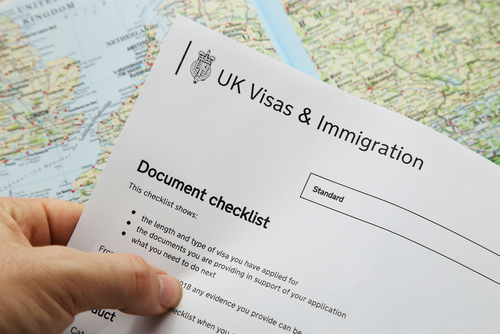Personal Injury Solicitors in Slip and Fall Claims
Every year, thousands of UK visa applications are rejected by the Home Office as a result of mistakes made either by the applicant or their sponsor. Something as seemingly trivial as submitting a photograph in the wrong format can lead to the application being rejected and the process having to be started again.
Written by
Ashwood Solicitors
Published on
12/10/2022

Has the government made the process deliberately difficult? Possibly. Considering its pledge to reduce net migration, this could indeed be the case, but one thing is for certain – for those responsible for the recruitment and employment of overseas workers in their organisations, the prospect of having a visa application refused should be a major cause for concern.
The application process is far from straightforward, requiring in-depth knowledge of the immigration rules and complicated documentation. For small and medium-sized businesses without their own dedicated immigration teams, the time and subsequent cost involved in securing working visas for employees is significant, and a rejected application can have further serious financial implications.
To help demonstrate the wide range of potential pitfalls, here are some of the most common reasons why UK visa applications are rejected:
Employers need to issue a valid Certificate of Sponsorship, or CoS, if they’re to employ an overseas worker legally. Assigning an incorrect or invalid CoS to a prospective employee could lead to the application being rejected or, even if approved, a potential fine of up to £20,000 for the employer, and the loss of their sponsor licence for employing a worker illegally.
Before they can hire a Tier 2 visa worker, employers may need to show they were unable to find a suitable worker from within the UK. Failure to meet the requirements of the RLMT may result in the application being rejected or their subsequent removal from the UK if identified during a UKVI compliance visit.
Supporting documents with missing or incomplete information or that are incorrectly formatted are a common reason why visa applications are rejected.
Standard Occupational Classification (SOC) codes are used to define the skill and salary level for occupations. Assign the wrong code and the application could be delayed or rejected.
The application will be rejected if the applicant can’t show they’ve enough money to support themselves when they arrive in the UK.
Something as simple as an incorrectly typed digit in a contact number can be enough to result in rejection.
As you can tell from this by no means comprehensive list, the ways in which a visa application can fail are many and varied, and the potential penalties can be devastating for a business. To avoid falling into one of these traps, we recommend contacting our own immigration law solicitors to take care of the application process for you.
Out of 980 reviews